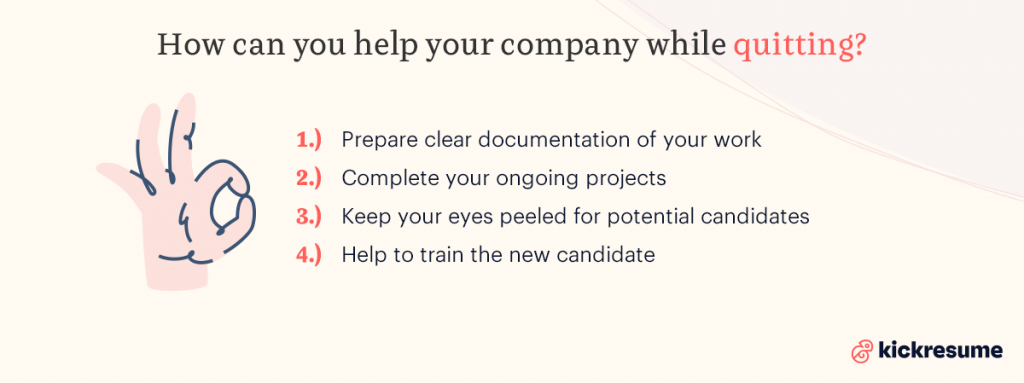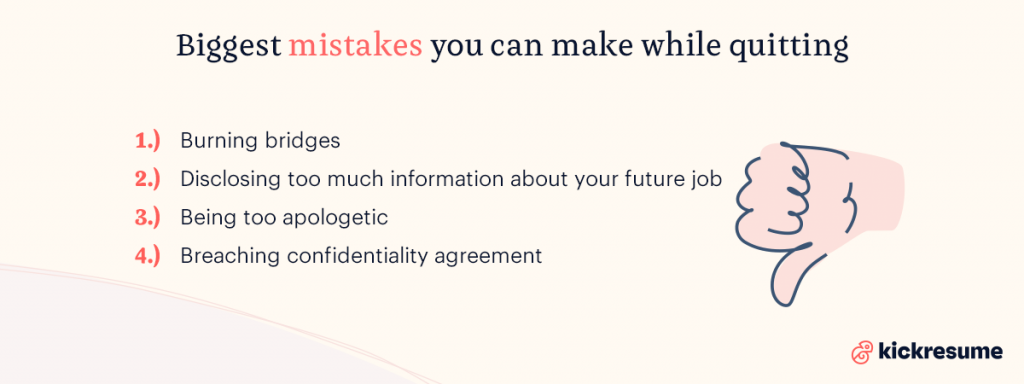How To Explain To Your Boss Why You Re Quitting

The office mug, perpetually stained with yesterday's coffee, sits abandoned on your desk. A half-eaten granola bar lies beside it, a testament to a day that started with good intentions but ended with a quiet resolve. You've made a decision, one that feels both liberating and terrifying, and now the words need to come. How do you articulate this pivotal moment to the person who, until recently, held your professional future in their hands?
Navigating the conversation of resignation with your boss is a delicate dance. It requires a blend of professionalism, honesty, and empathy. While the reasons behind your departure are personal, the way you communicate your decision can leave a lasting impression, both on your manager and your own peace of mind.
Preparing for the Conversation
Before you even utter the words "I'm resigning," take a moment for introspection. Understanding your motivations is key to a smooth and respectful conversation. According to a 2023 study by Gallup, career growth and development opportunities are among the top reasons employees leave their jobs.
Reflect on Your Reasons
Are you leaving for a better opportunity, a change of pace, or to pursue a passion project? Identifying your core reasons will help you articulate your decision clearly and confidently.
Timing is Everything
Choose a time and place that allows for a private, uninterrupted conversation. Schedule a meeting with your boss directly, rather than dropping the news unexpectedly. This shows respect for their time and allows them to process the information thoughtfully.
Craft Your Resignation Letter
Even though you'll be speaking face-to-face, a formal resignation letter is essential. Keep it concise and professional, stating your last day of employment and expressing gratitude for the opportunities you've had. You can find templates and examples online, such as those offered by SHRM (Society for Human Resource Management).
Delivering the News
The moment has arrived. You're sitting across from your boss, and the weight of your decision hangs in the air. Now, how do you begin?
Be Direct and Respectful
Start by stating your intention clearly and concisely. For example, "I wanted to let you know that I've made the decision to resign from my position as [Your Job Title]." This sets the tone for an open and honest conversation.
Express Gratitude
Acknowledge the opportunities and experiences you've gained during your time at the company. Even if your experience wasn't perfect, expressing gratitude shows professionalism and maintains a positive relationship. For example, “I’ve truly appreciated the opportunity to learn and grow here, particularly in [Specific area]."
Focus on the Future
Keep the conversation focused on your future goals and aspirations, rather than dwelling on any negative aspects of your current role. If appropriate, you can briefly explain your reasons for leaving, but avoid getting into excessive detail or negativity. A brief explanation like, “I’m pursuing an opportunity that aligns more closely with my long-term career goals in [Specific field]" is usually sufficient.
Offer Assistance During the Transition
Demonstrate your commitment to a smooth transition by offering to help train your replacement or complete any outstanding projects. This shows that you're leaving on good terms and are invested in the company's continued success. This can be something like, "I'm happy to assist in any way possible to ensure a smooth handover."
Navigating Potential Reactions
Your boss's reaction may vary depending on their personality and your relationship. Be prepared for a range of responses and try to remain calm and professional, regardless of their reaction.
They might be surprised, disappointed, or even angry. Allow them time to process the information and respond respectfully to their concerns. Active listening is key to diffusing any potential tension.
"The key is to remain calm, composed, and respectful, no matter how your boss reacts," says career coach Jane Smith.
Leaving a Positive Impression
Your resignation is a significant event, but it doesn't have to be a negative one. By handling the conversation with grace and professionalism, you can leave a lasting positive impression.
Remember, your professional network is valuable. Maintaining positive relationships with former colleagues and managers can open doors to future opportunities. Leaving on good terms is an investment in your long-term career success.
In the end, explaining your resignation is about more than just uttering the words. It's about taking ownership of your career path, communicating your decision with respect, and leaving a legacy of professionalism and integrity.



:max_bytes(150000):strip_icc()/how-to-tell-your-boss-you-re-quitting-your-job-2063035_FINAL-5b88037cc9e77c002cc6f46c.png)














